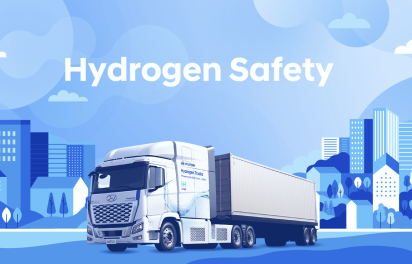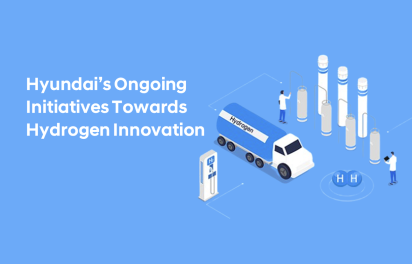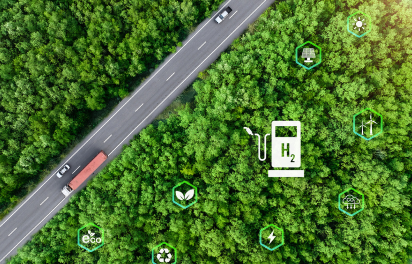Hyundai’s Ongoing Initiatives Towards Hydrogen Innovation
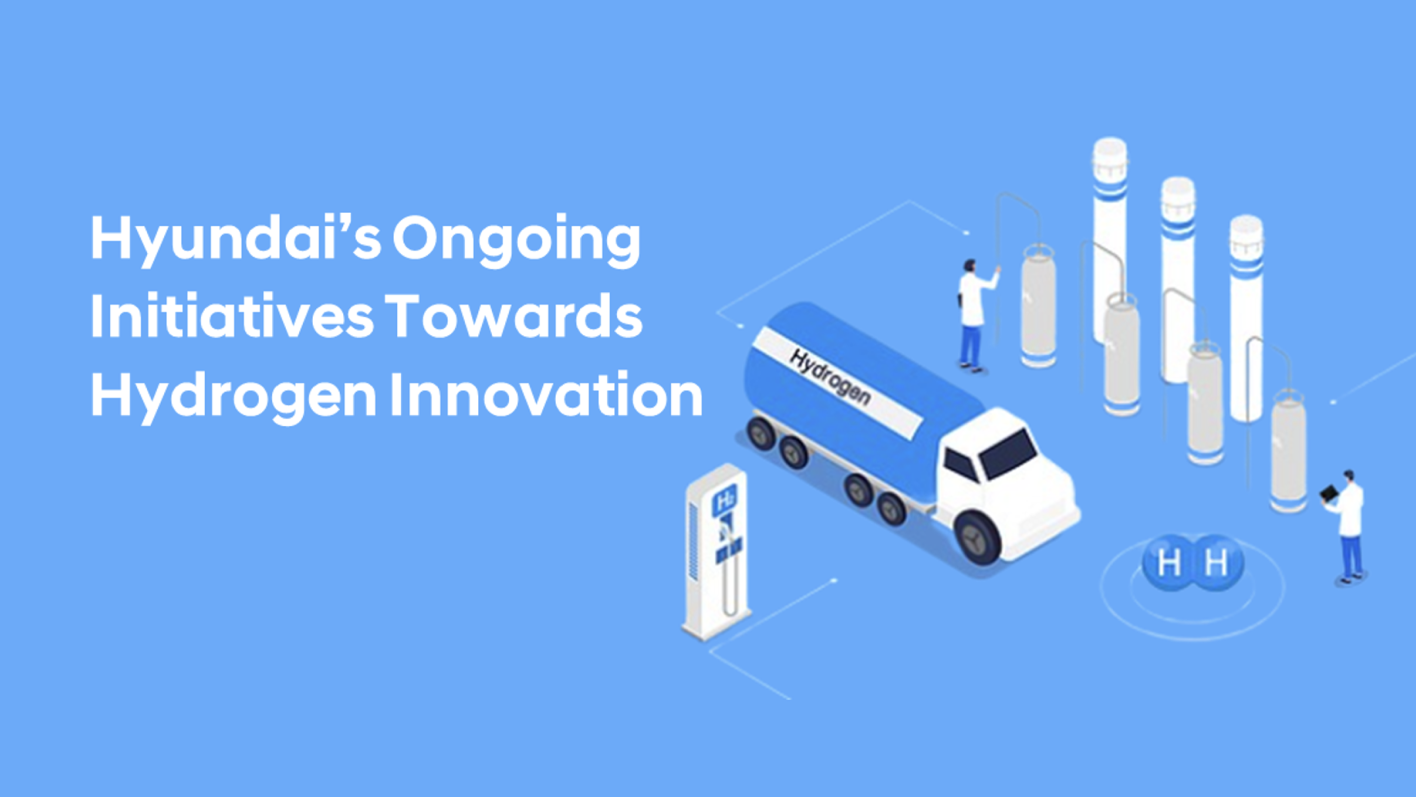

The role of hydrogen in tackling the climate crisis and diminishing CO2 emissions is gaining global recognition, largely due to its eco-friendly characteristics. Large-scale implementation of renewable hydrogen is anticipated to significantly lower greenhouse gas emissions, heralding a promising path to a sustainable future. The EU plans to invest $430 billion in green hydrogen by 2030 to meet the Paris Agreement, an international accord aiming to cut CO2 emissions by 45% by 2030 and reach net-zero emissions by 2050.
So, what role can hydrogen play in building a sustainable future? The European Commission points out that hydrogen-powered fuel cells can be particularly effective in commercial transportation sectors, including heavy-duty trucks. Hydrogen's quick refueling time and high energy density give it a distinct advantage for long-distance travel applications.
But let's not box in hydrogen as just a mobility solution. Fuel Cell & Hydrogen Energy Association (FCHEA) suggests that it could serve as a seasonal energy storage solution. As reliance on renewable energy increases, winters could challenge electrical grids due to reduced sunlight. However, hydrogen, generated during sun-abundant summers through electrolysis, could power the grid during overcast winter periods.
Consequently, hydrogen is anticipated to become the principal energy source across a broad spectrum of transportation and industrial sectors. This would eventually bring the establishment of a comprehensive hydrogen value chain and a society centered around hydrogen energy.
As the world progressively shifts towards alternative energy solutions, Hyundai is at the forefront of this transformation, particularly in the realm of zero-emission commercial transportation. Through collaborations with international partners in the hydrogen, energy, and logistics sectors, Hyundai Motor Company has advanced its fuel cell technologies and contributed to the growth of a hydrogen-based society. Hyundai Motor Company has established and continues to expand the groundwork for its global outreach in Korea, Europe, China, the United States, and more.
Advancements in Hyundai's Hydrogen Technologies and Ventures
In July 2021, Hyundai Motor Group announced, ‘Hydrogen Vision 2040,’ during Hydrogen Wave global online forum, aiming to popularize hydrogen by 2040 for all. Through the ‘Hydrogen Vision 2040’ initiative, Hyundai Motor Group seeks for proactive climate measures with hydrogen solutions. Our focus on hydrogen solutions began in the commercial vehicle sector, responsible for significant carbon emissions and typically demands a longer driving range than passenger vehicles.
Hyundai believes that beyond commercial vehicles, there's immense potential for fuel cell systems across a spectrum of industries: from air mobility and aircraft to ships, and even robotics. We acknowledge hydrogen’s capabilities as an energy container and plan to broaden the scope of fuel cell technologies into realms like energy and logistics.
Since launching the world's first mass-produced fuel cell electric vehicle, the ix35, back in 2013, Hyundai Motor Company has broadened its range of hydrogen-powered transportation solutions. These include the Hyundai NEXO SUV, the XCIENT Fuel Cell heavy-duty truck, the ELEC CITY Fuel Cell bus, and the UNIVERSE Fuel Cell bus, where all of these serve as zero-emission alternatives. As a steering member of the Hydrogen Council, a global coalition of leading energy, transportation, and industry companies with a shared vision and long-term ambition for hydrogen, Hyundai is committed to fostering a clean energy transition.
Behind the Scenes of Hyundai’s Global Hydrogen Facilities
Each Hyundai plant is like a maestro, conducting a particular stage of the fuel cell production orchestra! The world’s first dedicated hydrogen-powered SUV, the NEXO passenger vehicle is made in Plant 5 in Ulsan, while hydrogen-powered XCIENT Fuel Cell truck, ELEC CITY Fuel Cell bus, and UNIVERSE Fuel Cell bus are primarily produced in the Jeonju Plant.
1. Jeonju Plant in South Korea: the nerve center of XCIENT Fuel Cell heavy-truck production
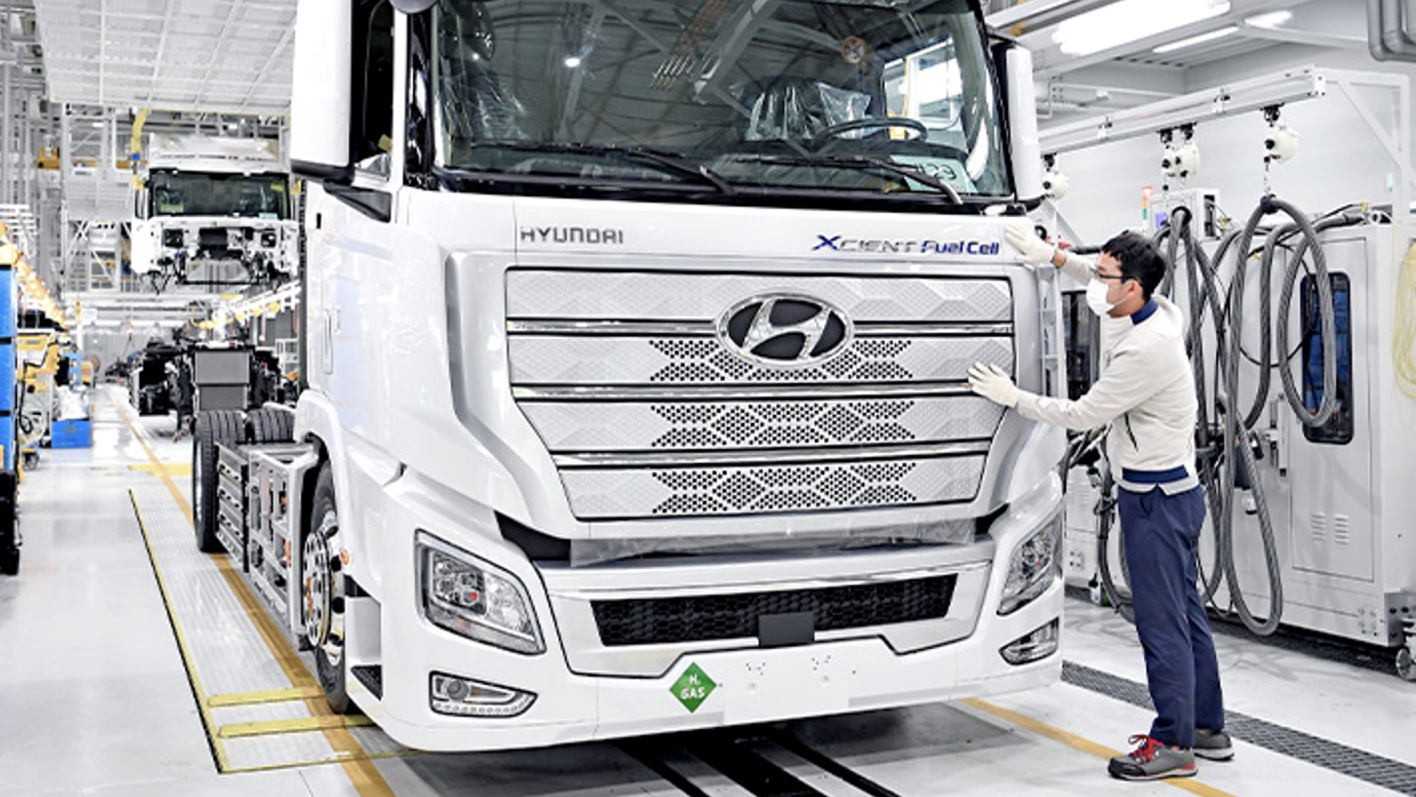

Let's zoom into the Jeonju Plant, the nerve center of XCIENT Fuel Cell heavy-duty truck production!
The Jeonju plant, founded in 1995 exclusively for commercial vehicles, now manufactures 14 different models, including both trucks and buses. This facility also produces hydrogen buses, notably the ELEC City Fuel Cell and Universe Fuel Cell. Housing over 5,000 employees, the Jeonju facility boasts an engine plant, materials plant, testing grounds, pilot center, and delivery center, capable of overseeing a wide range of operations. Recognized as a Green Company for environmental management practices, the plant's features span from distinct large-duty truck and bus production systems to simulating vehicles in diverse environments.
2. Guangzhou Plant in China: Groundbreaking Overseas Factory for Fuel Cell System
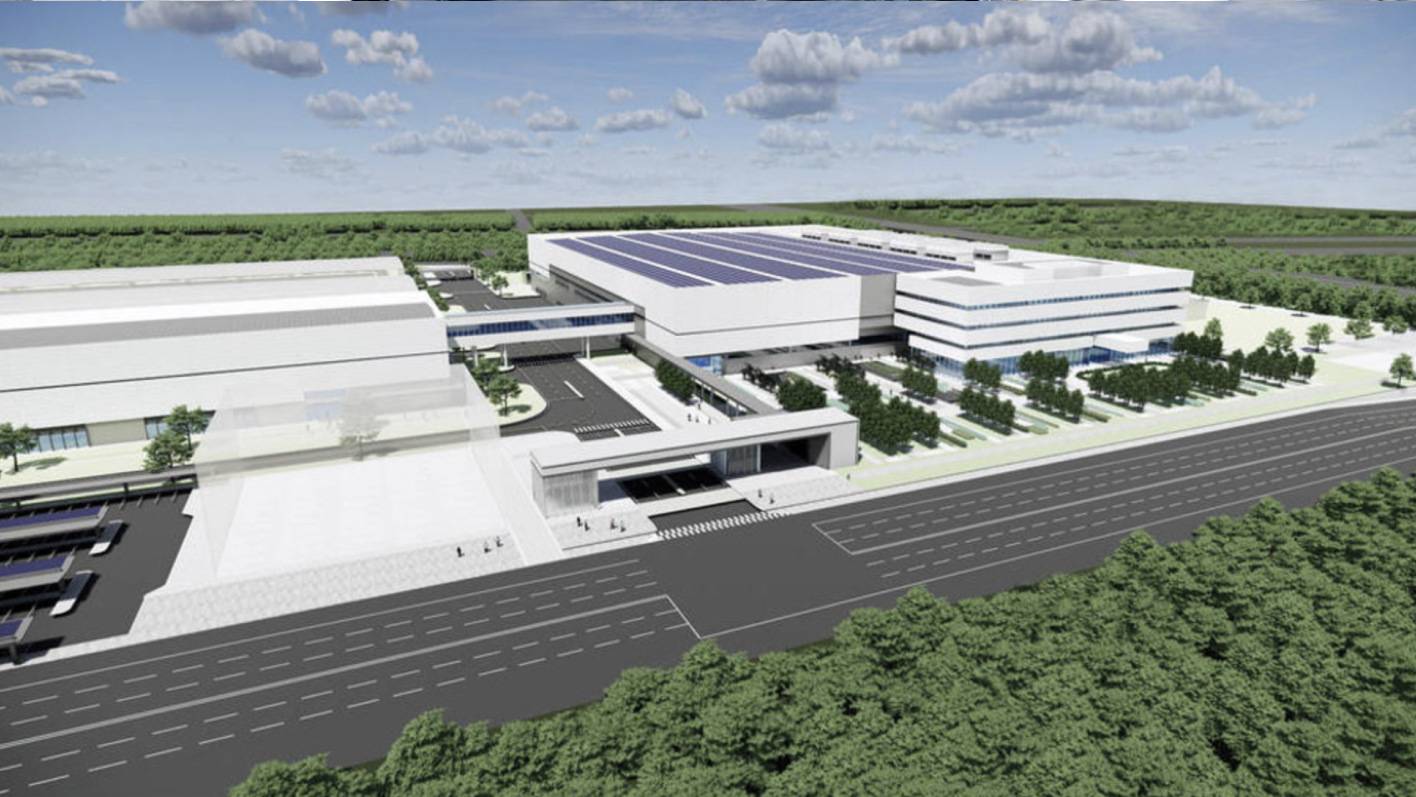

Next stop, the Guangzhou plant! While most of Hyundai's fuel cell production happens in their home country, South Korea, we are spreading our wings towards the world. In 2023, Hyundai completed the production of our first overseas fuel cell system facility, HTWO Guangzhou, setting sights on pre-empting the Chinese hydrogen market. HTWO Guangzhou aims to produce 6,500 fuel cell systems per year and gradually increase capacity in line with market demand. HTWO Guangzhou is a comprehensive facility comprising a stack factory, an activation factory, a research center, and both an office building and an innovation center.
3. HMETC in Germany: Shaping the European Driving Experience
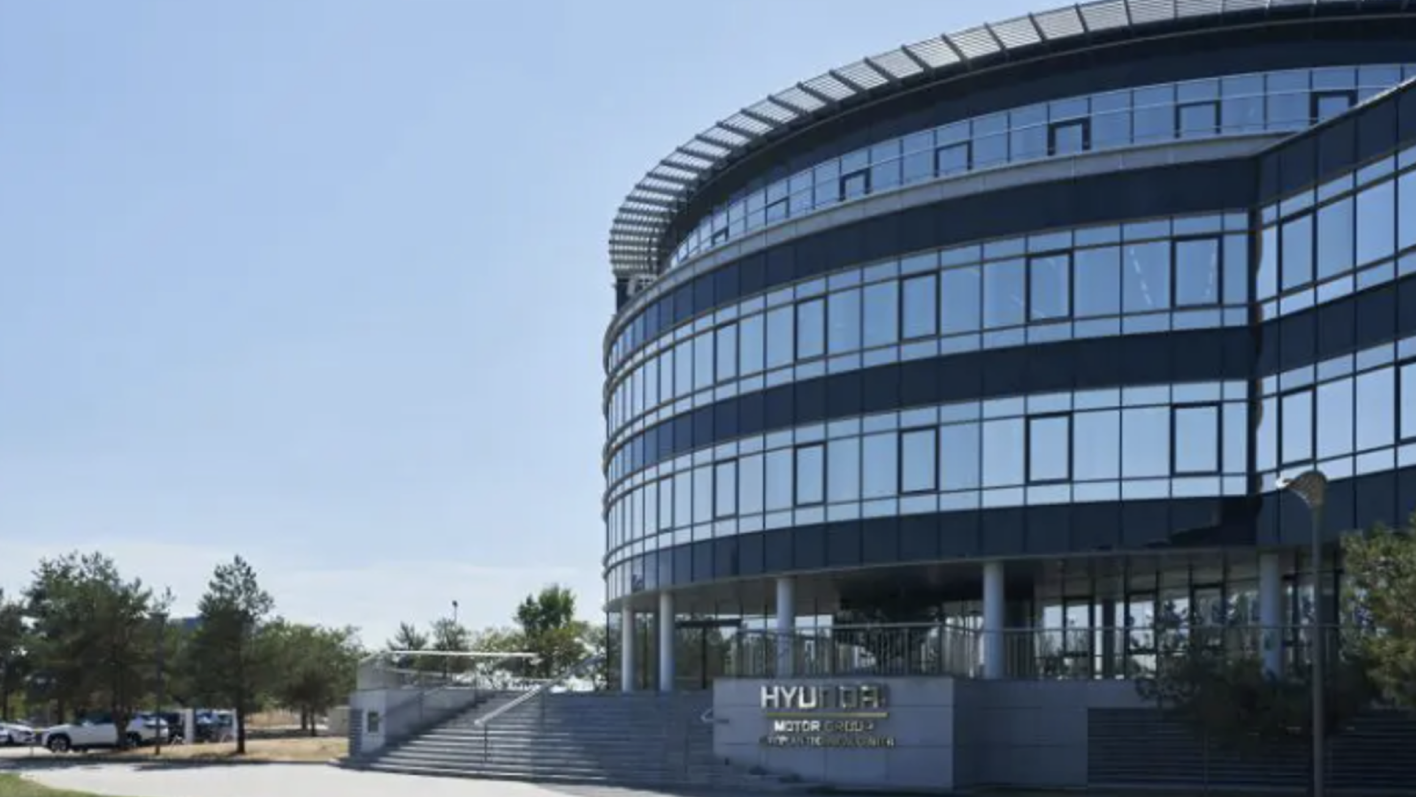

Imagine a space where innovation meets cultural diversity – that’s the Hyundai Motor Europe Technical Center (HMETC) in Rüsselsheim, Germany. As Hyundai's sole European R&D Center with 400+ multinational employees, it strives to exceed expectations through varied research such as innovative engineering achievements, spanning efficient drives, user-friendly charging solutions, optimal aerodynamics, innovative surfaces, comfortable chassis, and rigorous prototype testing, including at the Nürburgring.
Its Commercial Vehicles Department is instrumental in Hyundai's commercial vehicle R&D, centering on European customer needs. It significantly contributes to the development and market research of trucks and buses, collaborating with European suppliers and actively pushing for eco-friendly electric drive systems, with a vision to lead the development of eco-friendly commercial vehicles in Europe.
4. Namyang Research Center in South Korea: Hyundai’s Brain Hub
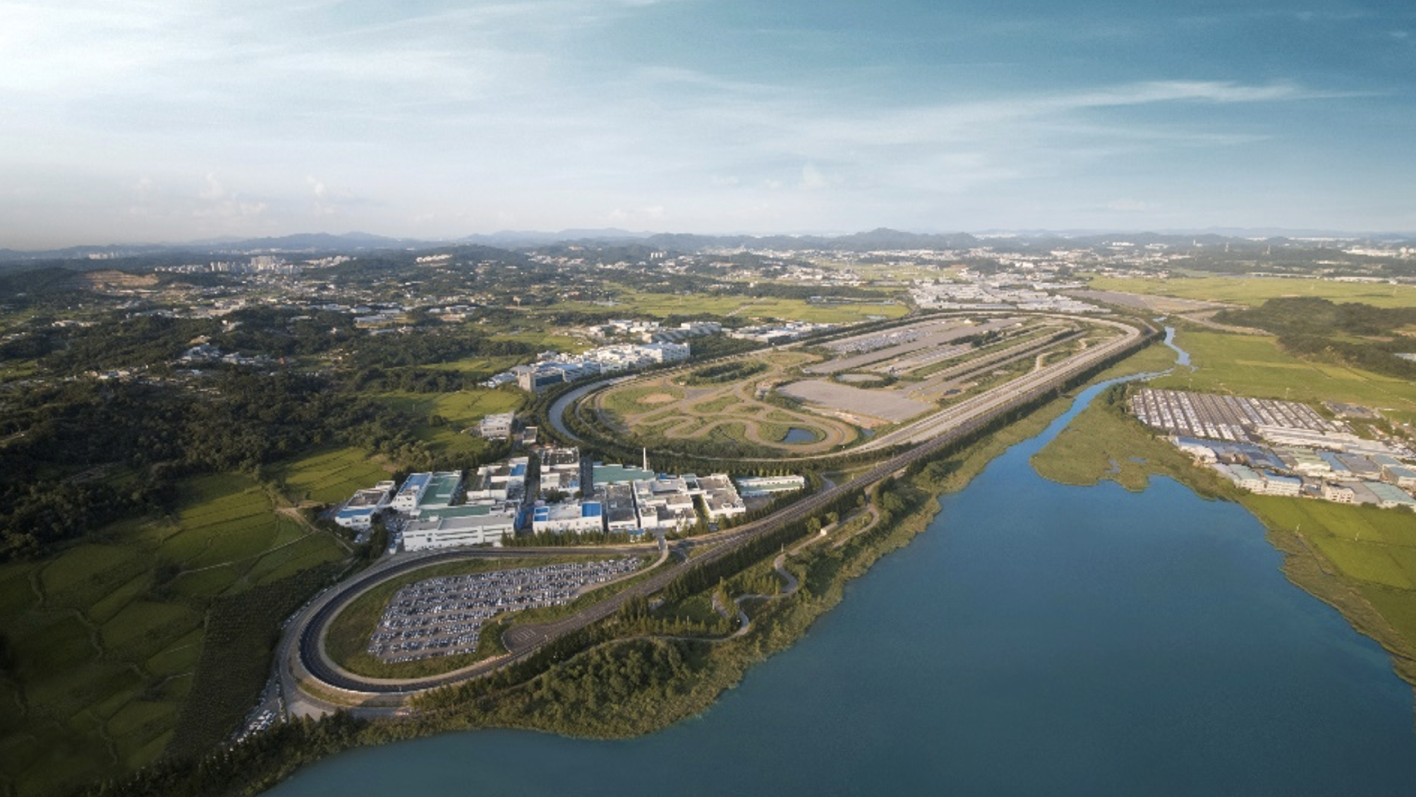

Namyang Research Center, Hyundai Motor Group's intellectual hub, is key to global R&D for future mobility. Hyundai Motor Company Research Center had its beginning at the Ulsan Technology Center in 1977. By 1995, it transformed into a world-class research institution after merging its research facilities from various locations to Namyang. Now, the Namyang Research Center covers a vast area of about 3.5 million square meters which is equivalent to the area of over 500 soccer fields.
With a dedicated team of approximately 13,700 professionals, including both researchers and other staff, the center is at the forefront of cutting-edge research and development activities. It oversees all aspects of vehicle development for passenger cars, RVs, and commercial vehicles. Key facilities include a design center, a powertrain center, and a crash test center.
5. Mabuk Eco-Friendly R&D Center in South Korea: Nurturing a Green Future
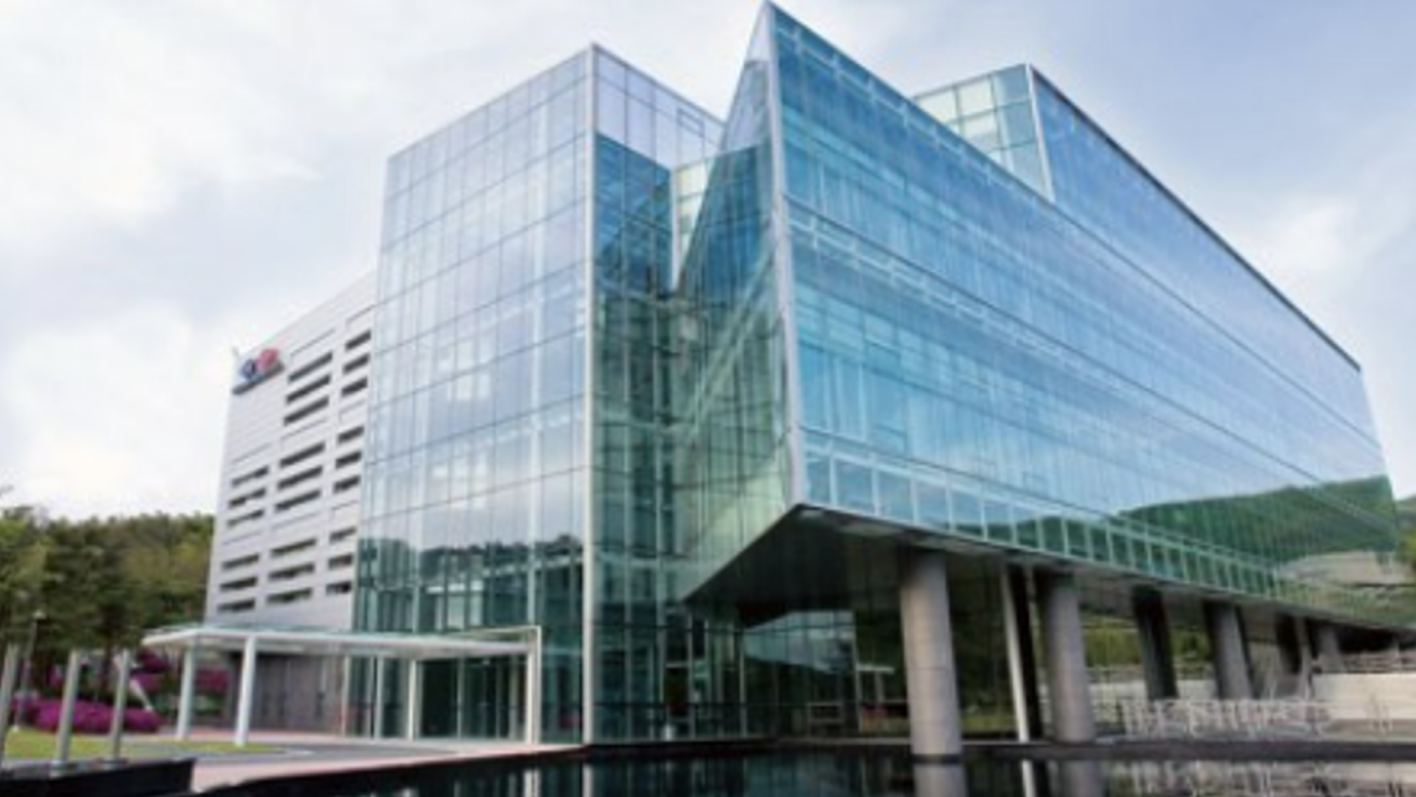

The Mabuk Eco-Friendly R&D Center in Yongin, Gyeonggi-do, is where Hyundai’s green dreams come to life. Specializing in the development of fuel-cell electric vehicles, the center focuses on pioneering research for eco-friendly automotive solutions. More specifically, it independently develops the development of fuel-cell stack and system technologies (key components of FCEVs), driving motor systems, and hydrogen storage systems.
Hyundai’s Vision for Carbon Neutrality with Integrated Hydrogen Business
Hyundai Motor Company debuted the commercialized model of the XCIENT Fuel Cell Tractor and reaffirmed the vision for an extended hydrogen business in LA’s Clean Technology event ‘ACT 2023’. Ken Ramirez, the Executive Vice President and leader of the Global Commercial Vehicle and Hydrogen Business division, underscored the company's dedication to developing a hydrogen-based business. “We firmly believe that hydrogen is one of the most powerful and pragmatic solutions for achieving our vision of ‘Progress for Humanity’ with emission-free mobility as a fundamental pillar for a sustainable society,” said Ramirez. In line with this, Hyundai is expanding its focus beyond transportation to develop an integrated hydrogen infrastructure that encompasses production to distribution for a more sustainable future.
The opinions expressed herein include external journalists' personal opinions and do not represent the Hyundai Motor Company's view in any way.
Download

